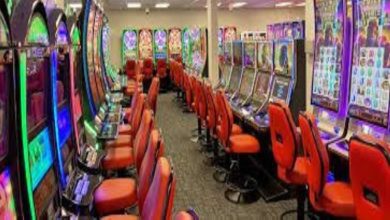How Online Gaming Helped People Cope During Global Lockdowns

The global lockdowns triggered by the COVID-19 pandemic reshaped many aspects of daily life, forcing millions of people to stay indoors for extended periods. During this unprecedented time, online gudangtoto emerged as a vital social outlet and a source of entertainment for many. Beyond just passing time, it played a significant role in mental health, social connection, and even learning.
This article explores how online gaming helped people cope during global lockdowns, shedding light on its psychological, social, and practical benefits during one of the most challenging periods in recent history.
Online Gaming as a Social Lifeline
Maintaining Social Connections
With social distancing and stay-at-home orders in place, physical interactions became limited. Online gaming provided a virtual space where friends, families, and even strangers could connect, communicate, and collaborate.
Games with multiplayer modes like Fortnite, Among Us, Call of Duty, and Animal Crossing became popular platforms for socializing. Players could chat, strategize, and hang out virtually, helping to alleviate feelings of loneliness and isolation.
Building New Communities
Lockdowns also gave rise to new gaming communities and groups. People joined online forums, Discord servers, and streaming platforms like Twitch to engage with others who shared their interests, creating fresh social bonds.
Psychological Benefits of Gaming During Lockdowns
Stress Relief and Mental Health Support
The uncertainty and anxiety surrounding the pandemic caused widespread stress. Gaming offered a welcome distraction—a way to relax and focus on fun challenges.
Research indicates that engaging in online games can boost dopamine levels, promoting feelings of pleasure and reward. This helped many manage anxiety and depression during lockdown.
Sense of Achievement and Control
In an unpredictable world, achieving goals in games gave players a sense of control and accomplishment. Progression systems, leveling up, and winning matches provided tangible successes when much else felt uncertain.
Cognitive and Skill Development
Enhancing Problem-Solving Skills
Many online games require strategic thinking, quick decision-making, and teamwork. Players sharpened cognitive skills that translated to real-world benefits, keeping their minds sharp during lockdown.
Learning and Creativity
Games like Minecraft allowed players to build and create, encouraging creativity and experimentation. This constructive outlet was particularly beneficial for younger players stuck at home.
The Rise of Online Gaming as a Shared Family Activity
Lockdowns also saw a surge in family gaming sessions. Parents and children played together, bridging generational gaps and strengthening family bonds. This shared activity helped improve communication and fostered fun, collaborative experiences in homes worldwide.
Supporting Mental Health Professionals and Initiatives
The gaming industry responded by supporting mental health initiatives. Many developers hosted charity streams, in-game events, and created content focused on well-being. This partnership between gaming and health awareness amplified positive messages and resources during difficult times.
Challenges and Responsible Gaming
While online gaming provided many benefits, it also came with challenges such as increased screen time and the risk of addiction. Experts recommended balanced gaming habits and breaks to maintain overall health.
Parents were encouraged to monitor children’s gaming and promote healthy routines, ensuring that gaming remained a positive coping tool.
Conclusion: A Digital Lifeline in a Time of Crisis
Online gaming proved to be more than just entertainment during global lockdowns—it became a crucial tool for connection, mental health support, and cognitive engagement. It helped millions worldwide cope with isolation, stress, and uncertainty, highlighting the power of virtual communities and interactive media.
As the world moves forward, the lessons learned from gaming’s role during lockdowns continue to influence how we view digital interaction and its place in maintaining well-being in challenging times.




